Huawei executive says it still seeks US sales
Updated: 2014-04-26 02:34
By MICHAEL BARRIS in New York (China Daily USA)
|
||||||||
Chinese telecommunications giant Huawei Technologies Co is still pursuing US sales, although at a reduced level after a 2012 US congressional report called the company's infrastructure business with major US carriers a threat to national security, the company's chief US representative said.
"I can't say the strategy is exactly the same" as it was before the report, Charles Ding told China Daily after his remarks to the 2014 China Business Conference at Columbia University on Friday. Ding repeated Huawei's view that it remains interested in lower-margin sales of mobile phones and other products to the world's largest economy.
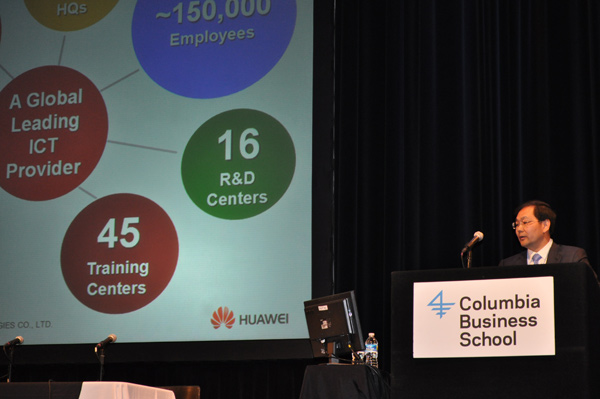 |
|
Charles Ding, Huawei Technologies' chief US representative, describes the telecommunication gear-maker's global growth strategy at a China business conference held at Columbia University on Friday.(MICHAEL BARRIS/CHINA DAILY) |
The congressional report produced sharp words from Ding's co-keynote speaker, William Owens, chairman of Hong Kong-based AEA Investors Asia and a former US Navy admiral.
"I object to the way Huawei was treated in the United States because it's unfair," said Owens, who commanded the US Sixth Fleet in 1990 and 1991 during Operation Desert Storm, and is vice-chairman of the New York Stock Exchange for Asia.
The October 2012 report by the US House Intelligence Committee panel accused Huawei and fellow Chinese telecom ZTE Corp of stealing intellectual property from US companies and said their equipment, when employed by US companies, could become a vehicle for Chinese spying in the US. The panel's report urged US carriers to stop doing business with Huawei and ZTE.
The companies rejected the report's claims as unfounded and launched aggressive global campaigns to counter the report's conclusions. A White House-ordered review found no concrete evidence to support the House report's espionage allegations.
The fallout from the report hampered the companies' efforts to establish their US credentials and expand into developed markets. Executives with Huawei, the world's second-largest supplier of network gear by revenue, later said the company would reduce its investment in the US equipment market to seek expansion in other markets, although it said it would focus on selling mobile phones in the US.
Even before the report, the US accounted for a mere $1.3 billion of Huawei's estimated $35 billion in 2012 sales. Customers such as Colorado-based Level 3 Communications, a major US broadband network operator, had bought an estimated $200 million in optical networking gear from Huawei since 2009, Bloomberg News reported.
Huawei recently entered the smartwatch market, tapping into a growing field as the crowded phone market reaches a saturation point.
"When you look around us, everything is getting connected," Huawei consumer-business unit vice-president Colin Giles was quoted by Agence France-Press. Giles said the group was taking early steps in the US to build better relationships with mobile operators and directly with consumers via online shops. "We recognize that the US is a very competitive and very tough market for us," Giles was quoted by Reuters.
Earlier this year, in a story based upon documents leaked by US whistle-blower Edward Snowden, the New York Times reported that since 2007 the US National Security Agency operated a covert program against Huawei, involving breaking into Huawei's internal networks.
Owens blamed what he called the US government's unfair treatment of Huawei on mistrust of both China and its companies.
"You want to find the best telecoms in the world, you go to Huawei," said Owens, who disclosed a connection to an enterprise that sells Huawei equipment in the US. "I'm unafraid because I know it's the best equipment, and we should be unafraid. If you want the best, you can't find it in companies that are competing with Huawei today."
"For the good of American people", he said, "we need Huawei in the United States."
Ding's address focused on Huawei's global-growth strategy, but made no reference to the company's problems with the US government. Follow-up questions from the audience were not permitted for either speaker.
Ding's presentation stressed how Huawei has become a leading maker of networking gear on the back of strong sales in China, Europe and emerging markets.
The conference, sponsored by Columbia Business School and the Greater China Society, explored the theme of the "Search for China's Next Growth Frontier", amid the nation's pivot away from an investment-driven growth model in favor of new growth strategies.
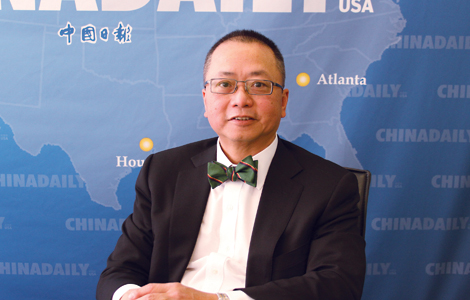
 'Global citizen' becomes head of C-100
'Global citizen' becomes head of C-100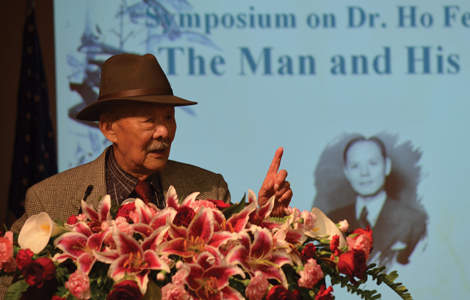
 At 96, a legendary chef can still inspire 'the best' Chinese food
At 96, a legendary chef can still inspire 'the best' Chinese food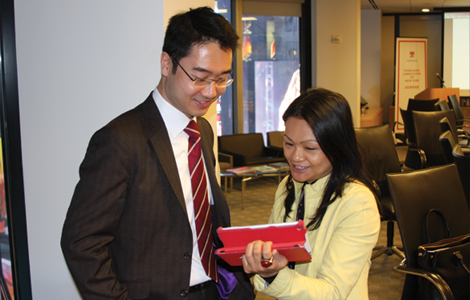
 China's wine consumption is growing
China's wine consumption is growing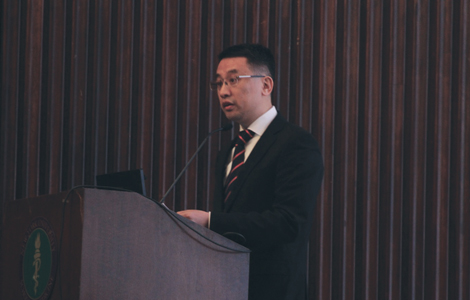
 China's reforms 'hitting right note'
China's reforms 'hitting right note'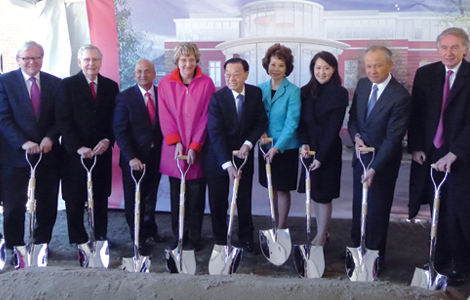
 Groundbreaking held for Harvard biz center named for a Chinese American
Groundbreaking held for Harvard biz center named for a Chinese American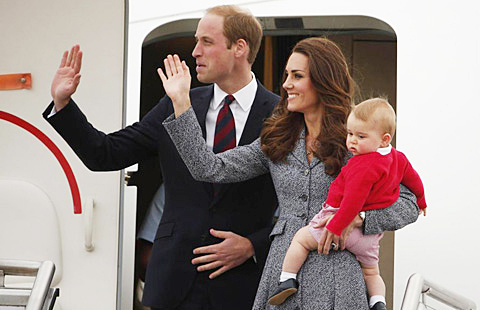
 UK royals wrap up tour of Australia and NZ
UK royals wrap up tour of Australia and NZ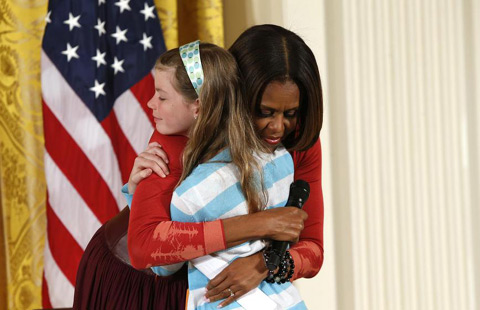
 Michelle honors 'Take our daughters and sons to work Day'
Michelle honors 'Take our daughters and sons to work Day'
 Pop-up cat cafe opens in New York
Pop-up cat cafe opens in New York
Most Viewed
Editor's Picks

|

|

|

|

|

|
Today's Top News
C-100 strengthens
US-China relations
David Tsang: Building a better future
Stephen Siu: Follow the star, no matter how far
Across America
Harvard dedicates new business center
Obama's Diaoyu Islands vow 'may backfire'
HK official says China's wine consumption can grow
US, Japan fail to reach TPP deal
US Weekly

|

|







